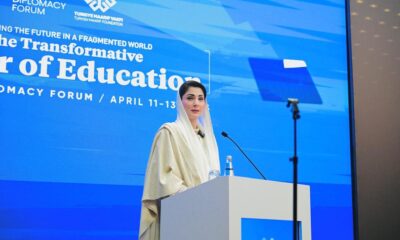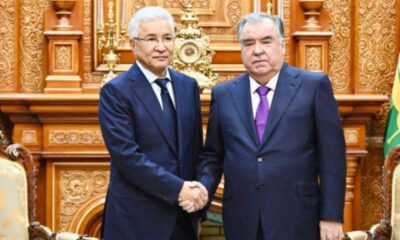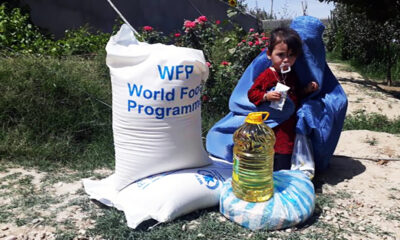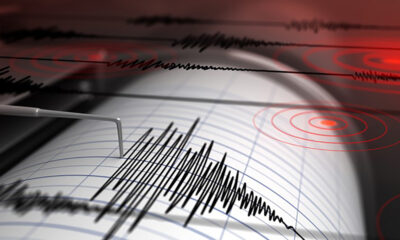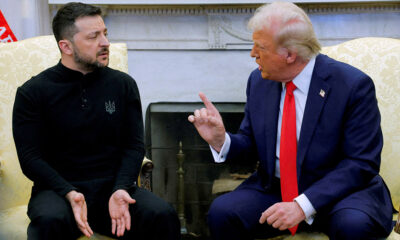Regional
Iranian President Ebrahim Raisi killed in helicopter crash
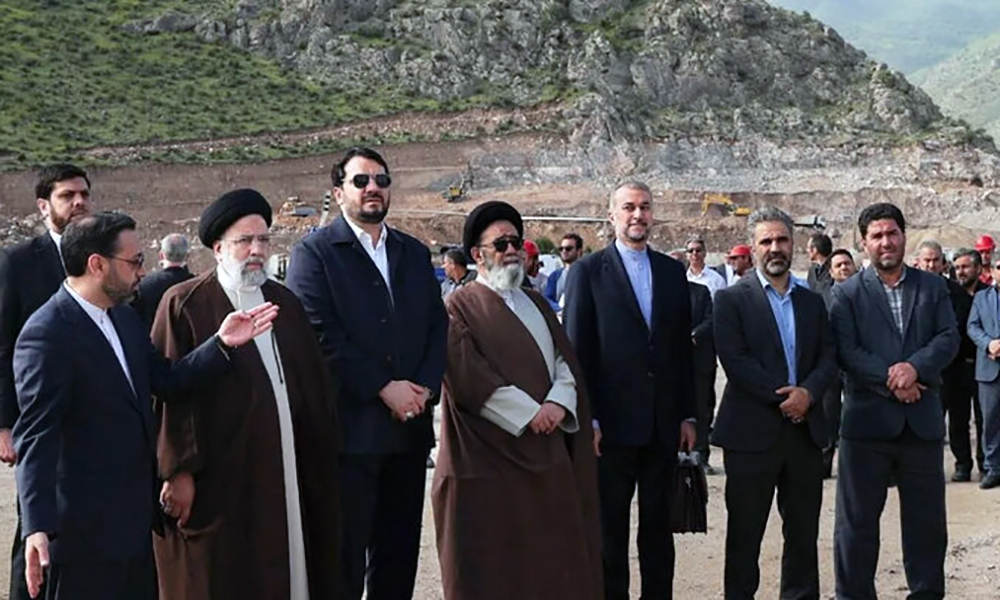
Iranian President Ebrahim Raisi and his foreign minister were killed in a helicopter crash in mountainous terrain and icy weather, an Iranian official said on Monday, after search teams located the wreckage in East Azerbaijan province, Reuters reported.
“President Raisi, the foreign minister and all the passengers in the helicopter were killed in the crash,” the senior Iranian official told Reuters, asking not to be named because of the sensitivity of the matter.
Iran’s Mehr news agency confirmed the deaths, reporting that “all passengers of the helicopter carrying the Iranian president and foreign minister were martyred”.
An Iranian official earlier told Reuters the helicopter carrying Raisi and Foreign Minister Hossein Amirabdollahian was completely burned in the crash on Sunday.
State TV reported that images from the site showed the aircraft slammed into a mountain peak, although there was no official word on the cause of the crash.
State news agency IRNA said Raisi was flying in a U.S.-made Bell 212 helicopter.
Raisi, 63, was elected president in 2021, and since taking office has ordered a tightening of morality laws, overseen a bloody crackdown on anti-government protests and pushed hard in nuclear talks with world powers.
Iranian Supreme Leader Ayatollah Ali Khamenei, who holds ultimate power with a final say on foreign policy and Iran’s nuclear programme, had earlier sought to reassure Iranians, saying there would be no disruption to state affairs.
PRAYERS, SEARCHES
Rescue teams fought blizzards and difficult terrain through the night to reach the wreckage in the early hours of Monday.
“With the discovery of the crash site, no signs of life have been detected among the helicopter’s passengers,” the head of Iran’s Red Crescent, Pirhossein Kolivand, told state TV.
Earlier, the national broadcaster had stopped all regular programming to show prayers being held for Raisi across the country, read the report.
In the early hours of Monday, it showed a rescue team, wearing bright jackets and head torches, huddled around a GPS device as they searched a pitch-black mountainside on foot in a blizzard.
Several countries expressed concern and offered assistance in any rescue.
The White House said U.S. President Joe Biden had been briefed on reports about the crash. China said it was deeply concerned. The European Union offered emergency satellite mapping technology.
HARDLINER, POSSIBLE SUCCESSOR TO KHAMENEI
The crash comes at a time of growing dissent within Iran over an array of political, social and economic crises. Iran’s clerical rulers face international pressure over Tehran’s disputed nuclear programme and its deepening military ties with Russia during the war in Ukraine.
Since Iran’s ally Hamas attacked Israel on Oct. 7, provoking Israel’s assault on Gaza, conflagrations involving Iran-aligned groups have erupted throughout the Middle East.
In Iran’s dual political system, split between the clerical establishment and the government, it is Raisi’s 85-year-old mentor Khamenei, supreme leader since 1989, who holds decision-making power on all major policies.
For years many have seen Raisi as a strong contender to succeed Khamenei, who has endorsed Raisi’s main policies.
Raisi’s victory in a closely managed election in 2021 brought all branches of power under the control of hardliners, after eight years when the presidency had been held by pragmatist Hassan Rouhani and a nuclear deal negotiated with powers including Washington.
However, Raisi’s standing may have been dented by widespread protests against clerical rule and a failure to turn around Iran’s economy, hamstrung by Western sanctions, Reuters reported.
Raisi had been at the Azerbaijani border on Sunday to inaugurate the Qiz-Qalasi Dam, a joint project. Azerbaijan’s President Ilham Aliyev, who said he had bid a “friendly farewell” to Raisi earlier in the day, offered assistance in the rescue.
Regional
Tajikistan President and CSTO Chief discuss bolstering security along Tajik-Afghan border
The two sides reviewed the progress of the first stage of a joint program among CSTO member states to strengthen border protection in this area.
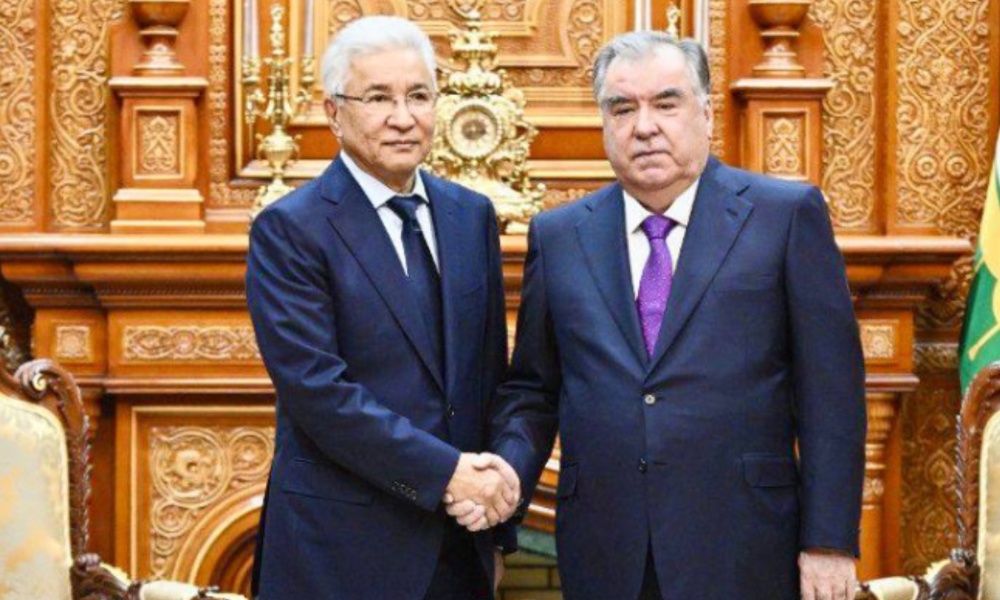
Regional
Iran, US hold ‘positive’ talks in Oman, agree to resume next week
Araqchi said his delegation had a brief encounter with its U.S. counterpart headed by Witkoff, after they exited the talks.
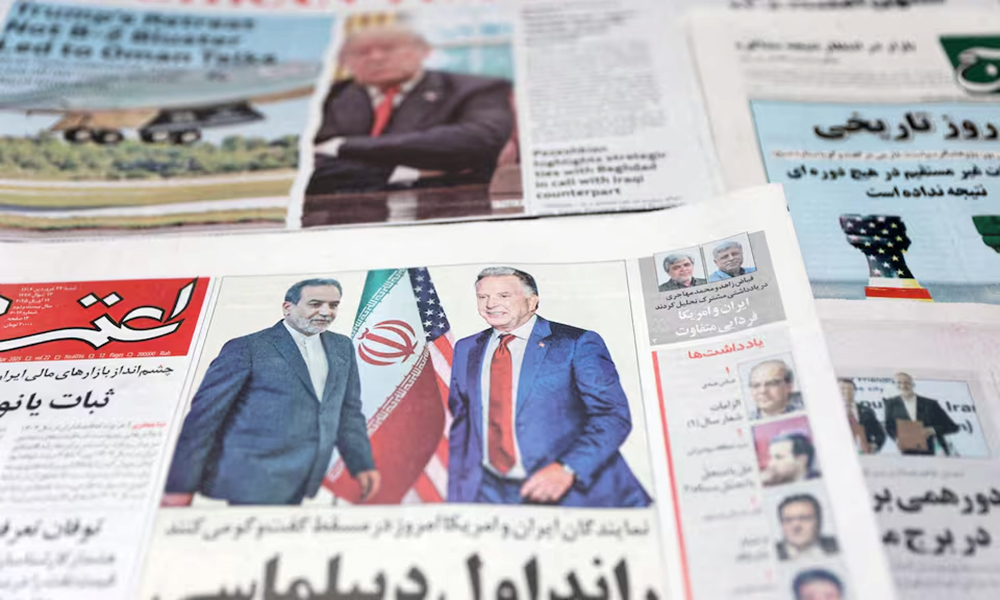
Iran and the U.S. said they held “positive” and “constructive” talks in Oman on Saturday and agreed to reconvene next week in a dialogue meant to address Tehran’s escalating nuclear programme, with President Donald Trump threatening military action if there is no deal, Reuters reported.
“I think we are very close to a basis for negotiations and if we can conclude this basis next week, we’ll have gone a long way and will be able to start real discussions based on that,” Iranian Foreign Minister Abbas Araqchi told state television.
Araqchi said the talks – the first between Iran and a Trump administration, including his 2017-2021 first term – took place in a “productive, calm and positive atmosphere”.
“Both sides have agreed to continue the talks … probably next Saturday,” Araqchi added. “Iran and the U.S. side want an agreement in the short term. We do not want talks for (the sake of) talks.”
The White House called the talks involving Trump’s Middle East envoy Steven Witkoff, U.S. Ambassador to Oman Ana Escrogima and Araqchi “very positive and constructive.”
“These issues are very complicated, and Special Envoy Witkoff’s direct communication today was a step forward in achieving a mutually beneficial outcome,” it said in a statement. “The sides agreed to meet again next Saturday.”
Asked about the talks, Trump told reporters on Saturday night: “I think they’re going OK.”
“Nothing matters until you get it done, so I don’t like talking about it, but it’s going OK. The Iran situation is going pretty good, I think,” he said on Air Force One.
Trump made a surprise announcement on Monday that Washington and Tehran would begin talks in Oman, a Gulf state that has mediated between the West and the Islamic Republic before. It has brokered the release of several foreign citizens and dual nationals held by Iran, read the report.
Saturday’s exchanges were indirect and mediated by Oman, as Iran had wanted, rather than face-to-face, as Trump had demanded. Each delegation had its separate room and exchanged messages via Oman’s foreign minister, according to Iranian Foreign Ministry spokesman Esmail Baghaei.
Araqchi said his delegation had a brief encounter with its U.S. counterpart headed by Witkoff, after they exited the talks.
“After the end of more than 2-1/2 hours of indirect talks, the heads of the Iranian and American delegations spoke for a few minutes in the presence of the Omani foreign minister as they left the talks. It (the encounter) was based on our political etiquette,” Araqchi said.
“The current focus of the talks will be de-escalating regional tensions, prisoner exchanges and limited agreements to ease sanctions (against Iran) in exchange for controlling Iran’s nuclear programme,” an Omani source told Reuters.
Baghaei denied this account but did not specify what was false.
Trump, who in his first term withdrew the U.S. from a 2015 big-power accord with Tehran, has again brought a tougher approach to a Middle Eastern power whose nuclear programme Washington’s ally Israel regards as an existential threat.
At the same time, Iran and allied groups have been weakened by the military offensives Israel has launched across the region, including air strikes in Iran, during its war with Hamas after the Palestinian militant group Hamas attacked Israel from Gaza in October 2023, Reuters reported.
Mikhail Ulyanov, Russia’s ambassador to international bodies in Vienna, called the statements issued by both sides after the talks “encouraging”.
Tehran approached the talks warily, sceptical they could yield a deal and suspicious of Trump, who has repeatedly threatened to bomb Iran if it does not halt its accelerating uranium enrichment programme – regarded by the West as a possible pathway to nuclear weapons.
While each side has talked up the chances of some progress, they remain far apart on a dispute that has rumbled on for more than two decades. Iran has long denied seeking nuclear weapons capability, but Western countries and Israel believe it is covertly trying to develop the means to build an atomic bomb.
“This is a beginning. So it is normal at this stage for the two sides to present to each other their fundamental positions through the Omani intermediary,” Baghaei said.
Signs of progress could help cool tensions in a region aflame since 2023 with wars in Gaza and Lebanon, missile fire between Iran and Israel, Houthi attacks on Red Sea shipping and the overthrow of the government in Syria.
However, failure would aggravate fears of a wider conflagration across a region that exports much of the world’s oil. Tehran has cautioned neighbouring countries that have U.S. bases that they would face “severe consequences” if they were involved in any U.S. military attack on the OPEC member.
“There is a chance for initial understanding on further negotiations if the other party (U.S.) enters the talks with an equal stance,” Araqchi told Iranian TV.
Iran’s Supreme Leader Ayatollah Ali Khamenei, who has the final say on key state matters, has given Araqchi “full authority” for the talks, an Iranian official told Reuters.
Iran has ruled out negotiating its defence capabilities such as its ballistic missile programme.
Western nations say Iran’s enrichment of uranium, a nuclear fuel source, has gone far beyond the requirements of a civilian energy programme and has produced stocks at a level of fissile purity close to those required in warheads.
Trump, who has restored a “maximum pressure” campaign on Tehran since February, ditched a 2015 nuclear pact between Iran and six world powers, including Russia and China, in 2018 during his first term and reimposed crippling sanctions on the Islamic Republic.
Since then, Iran’s nuclear programme has leaped forward, including by enriching uranium to 60% fissile purity, a technical step from the levels needed for a bomb.
Regional
South Korea establishes diplomatic ties with Syria
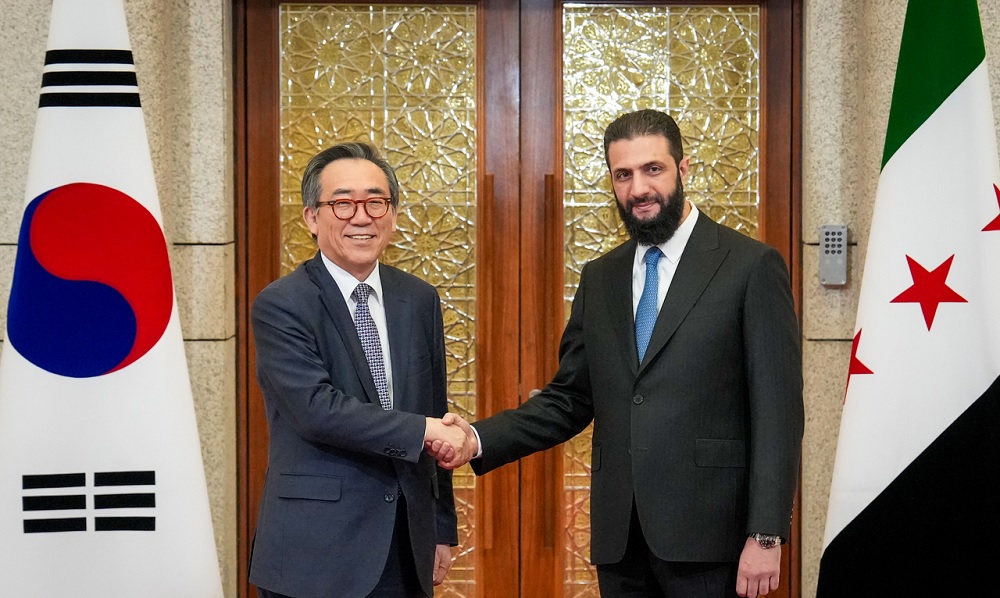
South Korea and Syria have signed an agreement in Damascus establishing diplomatic relations, the South Korean foreign ministry said on Friday, opening new ties with a traditional ally of its rival North Korea.
The event marks a milestone for South Korea now having established diplomatic ties with all 191 U.N. member states and opening “a new chapter for bilateral cooperation with Syria, which had long remained distant due to its close ties with North Korea,” the South Korean foreign ministry said, Reuters reported.
South Korea established diplomatic relations with Cuba last year, another old ally of the North.
North Korea’s state media ceased mentions of Syria since the overthrow of former President Bashar al-Assad in December except leader Kim Jong Un once referring to “the Middle East crisis” in passing.
A joint communique was signed by South Korean Foreign Minister Cho Tae-yul and Syria’s Asaad al-Shibani on Thursday, and Cho expressed willingness to share South Korea’s development experience to support Syria’s reconstruction, the ministry said.
Cho later met Syrian President Ahmed al-Sharaa, it said.
-

 Sport5 days ago
Sport5 days agoAfghanistan’s national futsal team heads to Morocco
-

 Sport4 days ago
Sport4 days agoAfghanistan win U-19 cricket series despite rain-impacted loss to Nepal
-
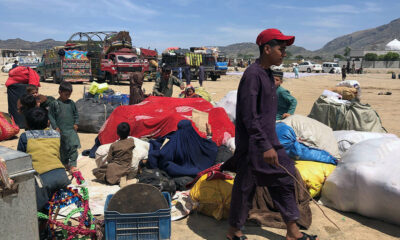
 Latest News5 days ago
Latest News5 days agoPakistan expels thousands of Afghan nationals in fresh drive, says UNHCR
-
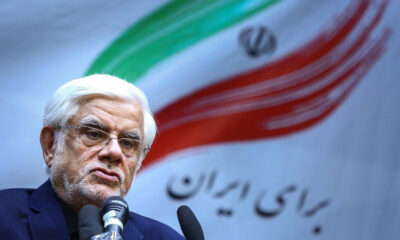
 Latest News4 days ago
Latest News4 days agoIran’s Vice President advocates stronger ties with neighbors, especially Afghanistan
-
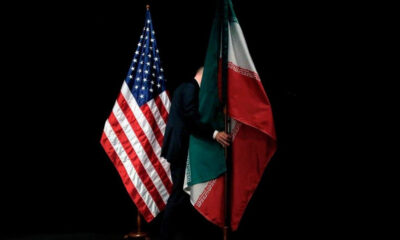
 Regional4 days ago
Regional4 days agoUS energy secretary sees tighter sanctions on Iran without deal
-
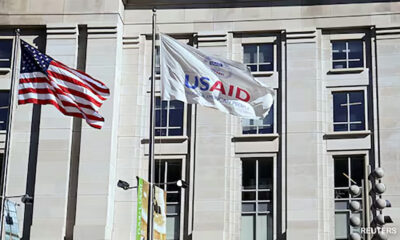
 Latest News4 days ago
Latest News4 days agoTrump administration moves to restore some terminated foreign aid programs, sources say
-
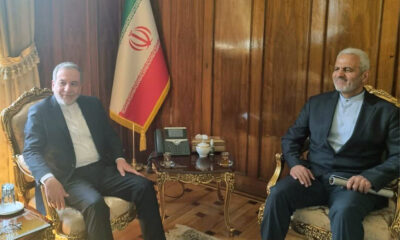
 Latest News4 days ago
Latest News4 days agoBigdeli updates Iran’s FM on current status of bilateral relations with Kabul
-
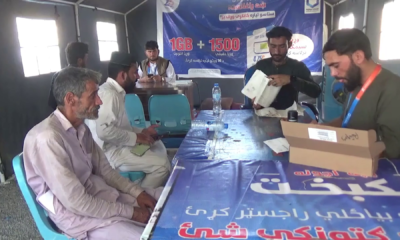
 Latest News4 days ago
Latest News4 days agoAWCC distributes free SIM cards to returning refugees from Pakistan


